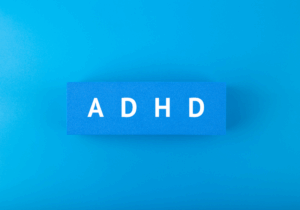Depression is much more than just feeling sad for a while. It is a mood disorder that affects the way a person thinks, feels, and handles daily activities. According to the World Health Organization (WHO), more than 280 million people worldwide suffer from depression. Despite its high prevalence, it remains an underestimated and often misunderstood condition.
What is depression?
Depression is a mental disorder characterized by persistent sadness, loss of interest or pleasure in almost all activities, fatigue, changes in sleep or appetite, feelings of worthlessness or guilt, difficulty concentrating, and even suicidal thoughts.
It can affect people of any age, gender, or social status and appears in varying degrees of severity—from mild to severe—and can even become disabling if not properly treated.
Not receiving timely or appropriate treatment for depression can have profound and lasting consequences:
- Worsening of symptoms: What begins as mild depression can progress to a more severe form, making recovery more difficult.
- Social isolation: The person may withdraw from emotional and work relationships, weakening their support network.
- Physical health problems: Untreated depression can impact the immune system, worsen chronic illnesses like diabetes or heart disease, and increase the risk of physical ailments.
- Suicide risk: One of the greatest dangers of untreated depression is suicidal ideation or attempts. Depression is one of the leading causes of suicide globally.
Fortunately, depression is treatable, and there are different therapeutic approaches that can be adapted to each individual case:
- Psychotherapy: Cognitive-behavioral therapy (CBT), interpersonal therapy, and psychodynamic therapy have proven effective. These therapies help individuals identify negative thought patterns, manage emotions, and develop coping skills for daily life.
- Pharmacological treatment: In moderate to severe cases, antidepressants may be necessary. These medications help balance neurotransmitter levels in the brain, such as serotonin and dopamine.
- Complementary therapies: Physical activity, meditation, relaxation techniques, lifestyle changes, support groups, and a balanced diet can significantly contribute to treatment.
- Advanced treatments: In treatment-resistant cases, electroconvulsive therapy (ECT) or transcranial magnetic stimulation (TMS) may be considered under medical supervision.
The Vital Role of Mental Health Professionals
Seeing a psychologist or psychiatrist is not a sign of weakness, but of strength and self-awareness. A trained professional can:
- Provide an accurate diagnosis.
- Guide the patient through the recovery process.
- Develop a personalized treatment plan.
- Monitor the progress of the disorder.
- Help prevent future relapses.
Moreover, having a safe and confidential space to express emotions can be both liberating and transformative.
Depression is not a choice or a sign of weakness—it is a real illness, but also a treatable one. Ignoring or minimizing it only delays the chance to get better. Seeking professional help not only alleviates symptoms but also improves quality of life and emotional well-being for the individual and their surroundings.
Recognizing the need for help is the first step toward recovery. Treating depression in time can make the difference between merely surviving and truly living.






